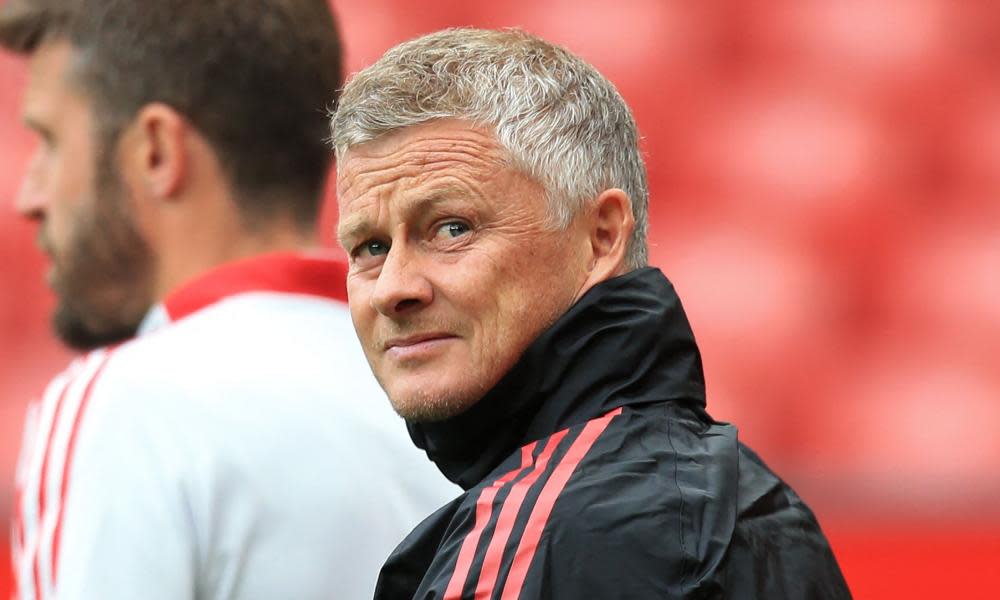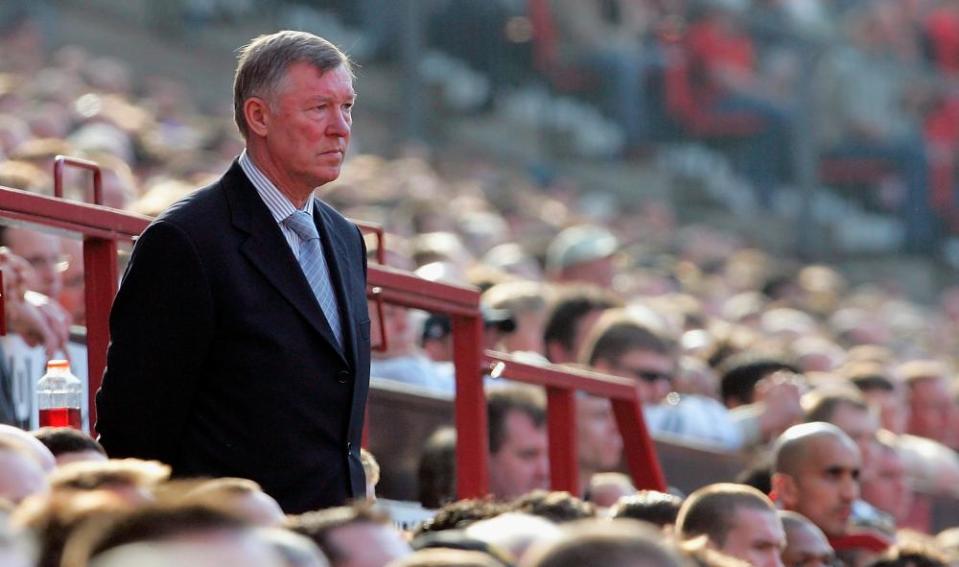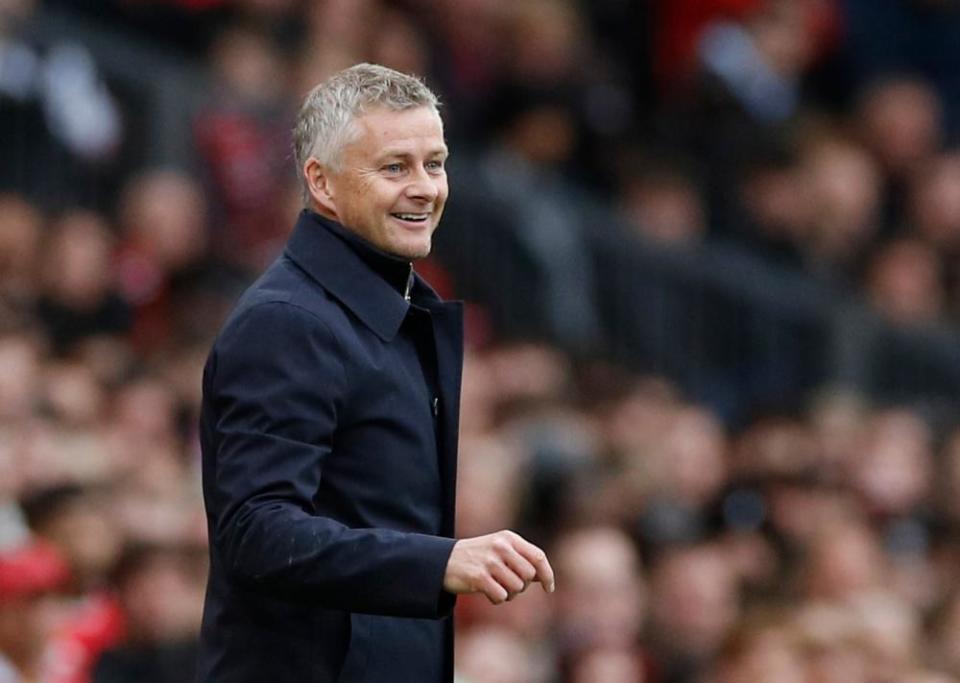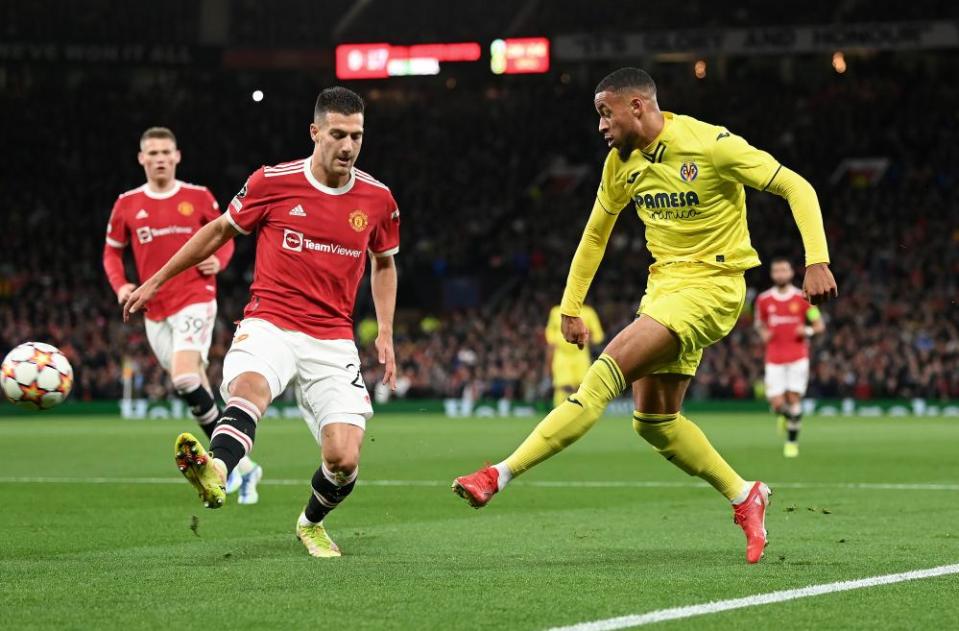Mr Nice Guy v hairdryer: the dilemma facing Solskjær before crunch games

Ole Gunnar Solskjær is the touchline Mr Nice Guy whose breezy demeanour may be counterproductive. To find a sighting of the manager scolding a Manchester United player is akin to a search for Lord Lucan: it could take some time.
Why does it matter? Because players, even subconsciously, can ease off, or just blithely fail to heed orders. There is, of course, little point in mindless venting with no material aim. But for a No 1 to be able to show who the No 1 is via a mid-game shock-and-awe lecture to stop aberrations is vital or performances will dip.
Solskjær’s great mentor, Sir Alex Ferguson, was so adept at mixing stick with carrot to keep talent performing and egos in check he drew a famous moniker for his upbraidings: the hairdryer. The Scot knew if it was not applied when required his authority would dissipate. First from players, but also from boardroom paymasters who would start to ponder if the right man was employed.

For Solskjær this is apposite because United entered the international break playing dismally and losing three out of their previous six games – to Young Boys, West Ham and Aston Villa – as well as drawing against Everton. During the last of these games Solskjær was hardly a picture of forensic fury after Andros Townsend’s breakaway equaliser, in which Fred, Luke Shaw, Victor Lindelöf and Aaron Wan-Bissaka made farces of their defensive work. Solskjær was later pictured smiling towards the end of a second successive costly Old Trafford league display, coming after the 1-0 defeat by Villa.
Afterwards he was critical – saying United had “enough numbers” (Shaw, Lindelöf, Wan-Bissaka and Fred) to stop Townsend while admitting they lacked “cutting edge” in attack. All true. But where was the targeted disquiet when it mattered, during the contest, when a tirade would let the quartet – and teammates – know they were accountable? For this game – as in all others – a Solskjær heat map would surely show close to all-red in the vicinity of his seat with the odd technical area splodge.

This is not to say he does not care but rather that his game face to players is more poker than puce. Keeping level-headed throughout the 90-plus minutes is a fine default state but the best managers know when to mix it up. Solskjær, though, is no pitch-side martinet and does not seem comfortable unloading verbal volleys in the manner of, say, Liverpool’s Jürgen Klopp or Pep Guardiola at Manchester City.
It comes down to the Norwegian’s style. His warm man-management stems from the idea that it is possible to realise the most from a footballer’s potential if they are content and rounded human beings. Countless United players (plus those formerly under Solskjær at Molde and Cardiff) attest to benefiting from this, and the corollary is their wanting to smash through walls for him.
Yet while they may intend to, United’s recent performances suggest there could be a touch too much pastoral care and bonhomie. Another illustration came in the victory over Villarreal, at Old Trafford, three days before Everton’s visit in which Diogo Dalot was torn apart by Arnaut Danjuma in the first half.

The Portuguese seemed a certainty to be replaced at the interval – the player might have been relieved – yet out Dalot trotted for the second half and when he was again breached by Danjuma the latter created Paco Alcácer’s opener. Solskjær’s reluctance to remove Dalot, who lasted the whole match, was as passive as his reluctance to tear strips off any bad performer, and is surely noted by the squad.
The Norwegian is a shrewd and intelligent operator identified by Ferguson from the glittering array of talent who worked under him as the one who might follow him in being able to handle the United behemoth. He seems, though, to have missed a vital component of the great Scot’s make-up: the hairdryer. How sometimes it has to be turned to 10 – and blasted out. If Solskjær possesses one it is either left at home or left unplugged in the changing room. If used too often it can become white noise, but utilise the technical-area rant strategically, as Klopp or Guardiola do, and it is a key piece of armoury. For Solskjær deploying it sagely can surely do no harm.
United’s problems will not all be fixed this way, of course. But, starting at Leicester on Saturday, they have a potentially defining three-week sequence of fixtures, with Atalanta, Liverpool, Tottenham, Atalanta again and Manchester City also to be faced.
Solskjær may, at some point, come to consider this: unless he hardens up his approach a touch there could, in time, be no more Mr Nice Guy leading his beloved club.

 Yahoo News
Yahoo News 
